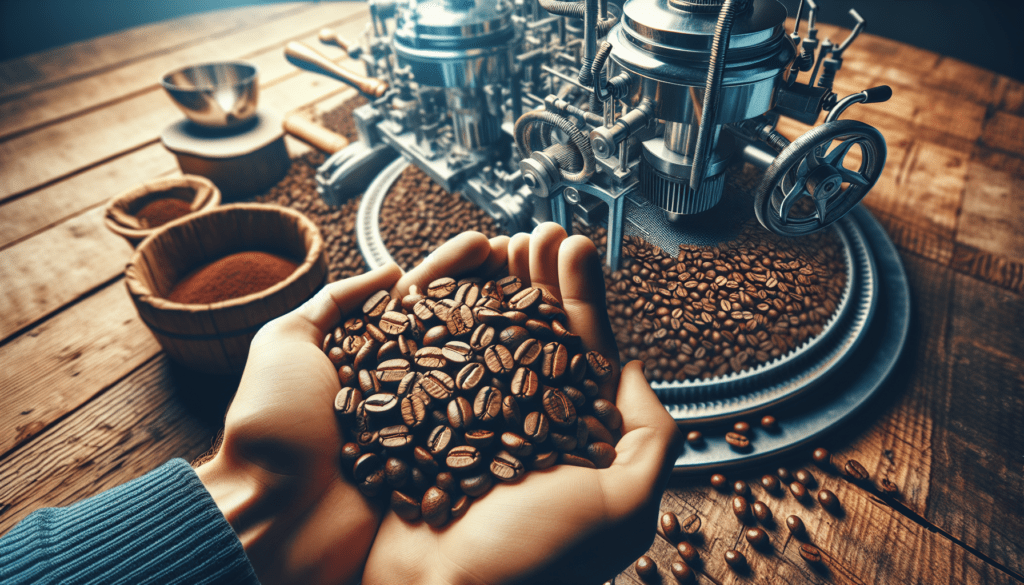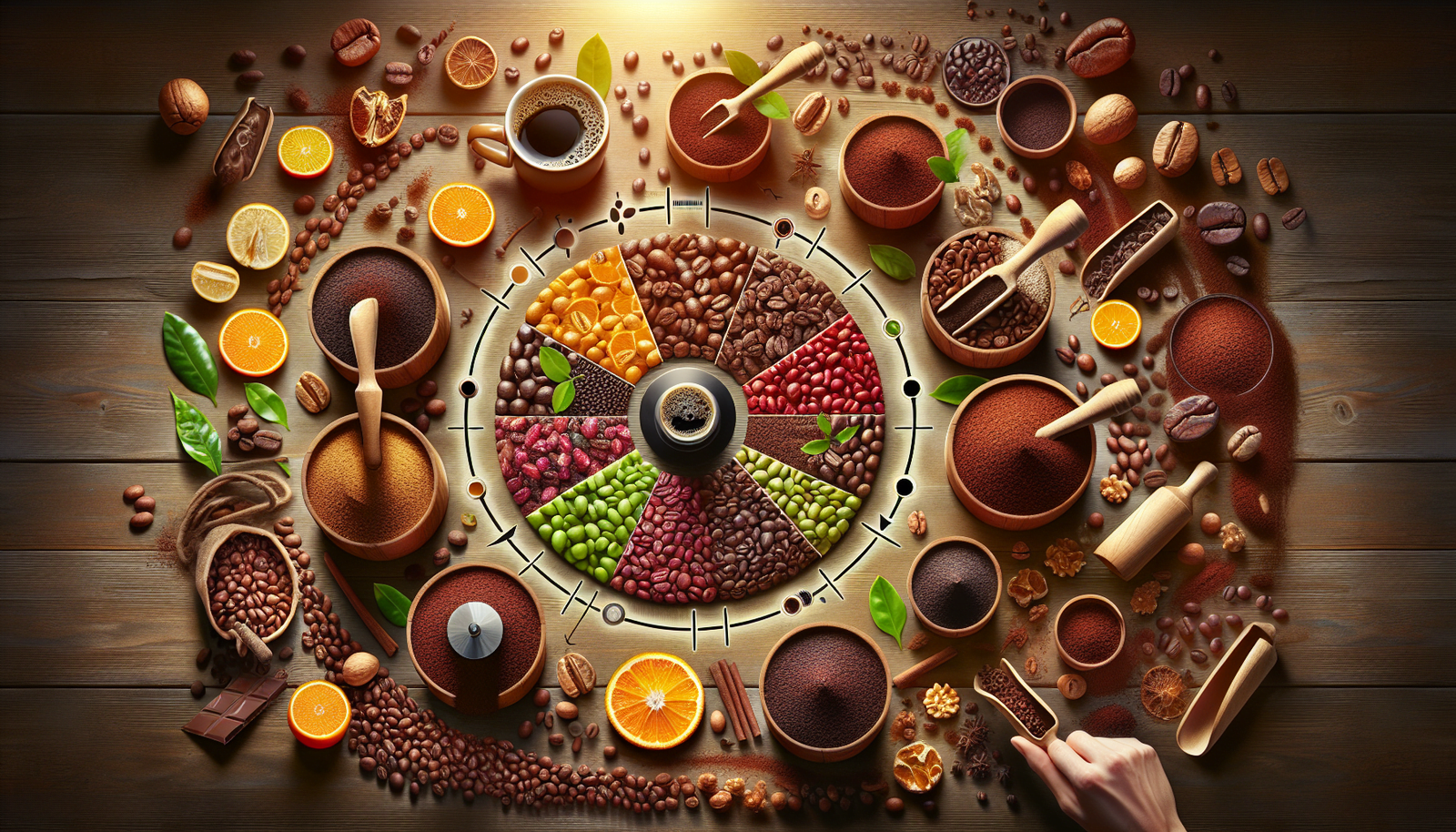Are you a coffee lover who is looking to cut back on your caffeine intake? Enter decaf coffee beans, the solution to your caffeinated woes. While coffee beans are renowned for their ability to energize and awaken the senses, sometimes we need a break from the jitters and sleepless nights. Decaf coffee beans provide all the rich flavor and aroma of regular coffee beans, without the stimulating effects of caffeine. In this article, we will explore the world of decaf coffee beans, from their origins to storage tips, and even the process of roasting them at home. So sit back, relax, and embark on a journey into the decaffeinated side of the coffee world.
Decaf Coffee Beans: Enjoying the Flavor without the Buzz
If you love the taste of coffee but prefer to avoid the jitters that come with caffeine, decaf coffee beans are the perfect solution for you. These beans offer all the delicious flavors and aromas of regular coffee, but with most of the caffeine removed. In this article, we’ll explore everything you need to know about decaf coffee beans, from their origins to the best brewing methods.

What are Decaf Coffee Beans?
Decaf coffee beans are simply regular coffee beans that have undergone a process to remove the majority of their caffeine content. This process is typically done by soaking the beans in water or using a solvent to extract the caffeine. Once the caffeine has been extracted, the beans are dried and roasted, just like regular coffee beans.
How are Decaf Coffee Beans Made?
There are several different methods used to decaffeinate coffee beans. Let’s take a closer look at some of the most common ones:
1. Swiss Water Process: This method involves soaking the coffee beans in water to extract the caffeine. The water is then filtered through activated charcoal, which traps the caffeine molecules while allowing the flavorful compounds to remain. The beans are then dried and roasted.
2. Direct Solvent Process: In this method, a chemical solvent like methylene chloride or ethyl acetate is used to extract the caffeine from the beans. The solvent is then evaporated, leaving behind decaffeinated coffee beans. However, it’s worth noting that some people prefer to avoid coffee that has been decaffeinated using chemical solvents.
3. Carbon Dioxide (CO2) Method: This method uses pressurized carbon dioxide to extract the caffeine from the beans. The carbon dioxide is then removed, leaving behind decaffeinated coffee beans.
The Flavor Profile of Decaf Coffee Beans
One common misconception about decaf coffee beans is that they are lacking in flavor. While it’s true that the decaffeination process can affect the taste to some extent, advancements in technology have made it possible to retain much of the original flavor profile. The flavor of decaf coffee beans can vary depending on factors such as the bean’s origin, roast level, and brewing method.
Decaf coffee beans can exhibit a wide range of flavors, from smooth and nutty to bold and chocolaty. It’s important to experiment with different brands and origins to find the decaf beans that best suit your taste preferences.
The Best Brewing Methods for Decaf Coffee Beans
Decaf coffee beans can be brewed using any method that you would use for regular coffee. Here are a few popular brewing methods that work particularly well with decaf beans:
1. Pour Over: This method involves slowly pouring hot water over a filter containing ground coffee beans. It allows you to control the extraction process and brings out the subtle flavors of decaf coffee.
2. French Press: The French press method involves steeping coarsely ground coffee beans in hot water for a few minutes before pressing down a plunger to separate the brewed coffee from the grounds. This method is known for producing a robust and full-bodied cup of decaf coffee.
3. Cold Brew: Cold brew involves steeping coffee grounds in cold water for an extended period, usually overnight. This results in a smooth, low-acid cup of coffee that is perfect for those who prefer a milder taste.

Finding the Best Decaf Coffee Beans
When it comes to finding the best decaf coffee beans, it’s all about personal preference. Some popular options include Colombian decaf beans, which often have a well-balanced flavor profile, and Swiss Water Process decaf beans, which are known for their clean taste.
It’s important to read reviews and try different brands to find the decaf coffee beans that you enjoy the most. Remember, just because a coffee is decaffeinated doesn’t mean it can’t be flavorful and satisfying.
Storing Decaf Coffee Beans
Proper storage is key to preserving the flavor and freshness of decaf coffee beans. Here are a few tips to ensure your beans stay at their best:
1. Keep them in airtight containers: Exposure to air is one of the biggest enemies of coffee beans. Store your decaf beans in airtight containers, preferably in a cool, dark pantry or cupboard.
2. Avoid moisture and heat: Moisture can cause the beans to spoil, while heat can accelerate the aging process. Keep your decaf coffee beans away from areas with high humidity or direct sunlight.
3. Use them within a few weeks: Like regular coffee beans, decaf beans are best when used within a few weeks of roasting. This ensures optimal freshness and flavor.
Conclusion
Decaf coffee beans offer a fantastic option for coffee lovers who want to enjoy the taste of coffee without the caffeine. With advancements in decaffeination methods, you can now find decaf beans that retain much of the original flavor profile. Experiment with different brands, origins, and brewing methods to find the decaf coffee beans that suit your taste preferences perfectly. So go ahead, brew a cup of decaf, and savor the flavors without worrying about the buzz.

